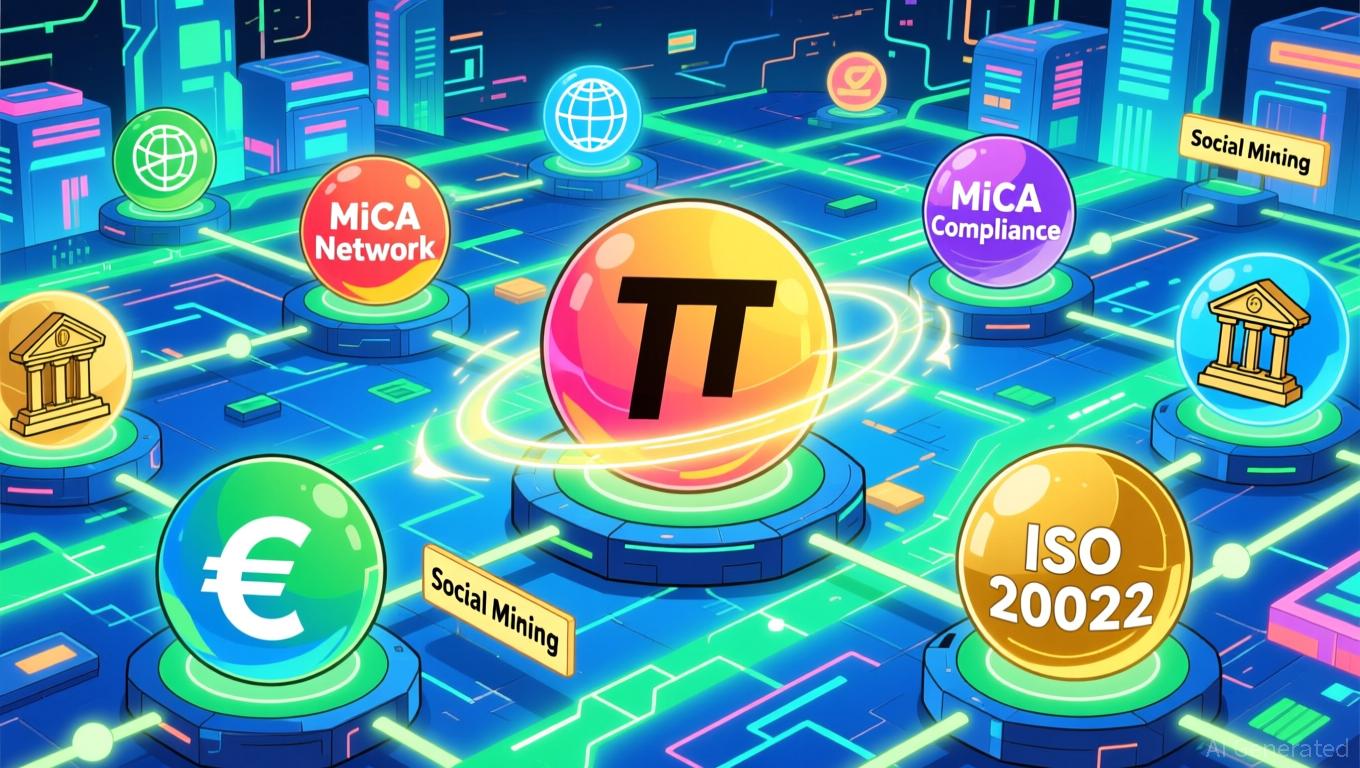TWT's Updated Tokenomics: Genuine Sustainability or Just Postponing Devaluation?
- Trust Wallet Token (TWT) rebranded as Toncoin in 2025, shifting from governance to gamified utility via the Trust Premium loyalty program. - A 2020 token burn eliminated 88.9B TWT (40% of supply), creating scarcity but raising liquidity concerns amid limited adoption incentives. - TNSR's market resilience contrasts with TWT's risks, as centralized utilities and opaque supply management threaten liquidity and institutional trust. - TWT's success depends on balancing gamified engagement with decentralized
Structural Changes: From Governance to Gamified Utility
In 2025, TWT’s tokenomics will shift focus from governance to gamified utility, launching the Trust Premium loyalty scheme. This program incentivizes users for activities such as swapping, staking, and holding
A pivotal part of this overhaul was the 2020 token burn, which removed 88.9 billion TWT from circulation—creating scarcity but also sparking liquidity concerns. By that year, more than 40% of TWT tokens were already available on the market, so the burn’s scarcity effect could be weakened if liquidity remains low. Some observers
Utility and Adoption: A Double-Edged Sword
The effectiveness of the Trust Premium model depends on attracting a large user base. If the program fails to reach enough participants, the token’s practical use—and its price—could remain limited. For comparison, staking rewards in 2024 averaged 18.5% for
TNSR’s recent performance during a market downturn provides a contrasting case. Its strong position in the
Liquidity and Transparency: Critical Gaps
Issues of transparency and liquidity remain unresolved. TWT’s tokenomics do not offer the same clarity as projects like Monad, which locks over half its supply at launch to support long-term objectives. In contrast, TWT’s less transparent approach to supply could discourage institutional investors, who value predictability
Liquidity challenges are further highlighted by TNSR’s recent situation. Following Coinbase’s purchase of Vector.fun, TNSR holders lost access to a key utility (Vector’s consumer app), turning the governance token into one with fewer practical uses. This led to increased selling and price swings, highlighting the vulnerability of tokens that rely on centralized platforms
TNSR Analogy: Lessons for TWT
TNSR’s adoption of open-source protocols and grant initiatives has broadened its revenue streams but also brought the risk of increased selling from large token distributions. TWT’s 2025 update must similarly find a balance between expanding utility and managing supply. For example, TNSR’s emphasis on real-world assets and AI-powered tools has added both complexity and execution risk
Conclusion: A Delicate Balance
TWT’s tokenomics redesign marks a strategic move toward value based on real utility, but its future depends on overcoming challenges in liquidity, transparency, and adoption. The gamification and scarcity elements are encouraging, yet they echo the vulnerabilities seen in TNSR’s post-acquisition decline. If Trust Wallet can maintain user momentum and align incentives with ecosystem development, TWT could sidestep the fate of purely speculative governance tokens. Still, without strong liquidity solutions and transparent practices suitable for institutions, these changes may only postpone a potential downturn.
Investors should keep an eye on critical indicators: Trust Premium’s user growth, staking involvement, and how TWT compares to TNSR’s track record. At present, TWT’s tokenomics walk a fine line between breakthrough and instability—a risk that could either yield rewards or falter under market stress.
Disclaimer: The content of this article solely reflects the author's opinion and does not represent the platform in any capacity. This article is not intended to serve as a reference for making investment decisions.
You may also like
Crypto ATM Leader's $100 Million Deal Highlights Industry's Regulatory Challenges
- Crypto Dispensers, a Bitcoin ATM firm under federal money laundering investigation, seeks $100M sale amid legal pressures. - Founder Firas Isa faces 20-year prison risk for allegedly converting illicit funds to crypto via ATMs between 2018-2025. - DOJ alleges the company violated AML rules by funneling proceeds into obscured digital wallets, challenging crypto sector compliance. - Market downturn and rising regulatory costs accelerate industry consolidation as mid-sized firms struggle with compliance dem

Bitcoin Updates: Navigating the Balance Between Innovation, Market Fluctuations, and Regulatory Challenges
- MicroStrategy's Q3 2025 earnings surged to $8.42/share via Bitcoin gains, but shares fell 14% as mNAV approached 1x, limiting further BTC purchases. - DeFi faces $12B liquidity crisis; 1inch's Aqua protocol aims to unify fragmented strategies while preserving user custody and capital efficiency. - UK NCA uncovered $B+ drug network exploiting crypto to funnel funds to Russian elites, highlighting blockchain's dual role in innovation and illicit finance. - Aerodrome Finance's front-end attack amid merger w

Bitcoin News Today: Bitcoin's Battle Between Bulls and Bears: Large Holders Increase Holdings Amid Potential 60% Decline
- Bitcoin faces 60% bear market risk per Andy Edstrom, who cites historical triggers like hacks and leverage unwinds, yet maintains a 40% $200,000 upside potential. - Whale accumulation (1,436+ 1,000-BTC wallets) contradicts traditional bear signals, with macro strategist Gert van Lagen highlighting "unprecedented demand" from large holders. - Leverage Shares and BexBack introduce amplified crypto products amid 21% YTD declines, raising concerns about volatility risks in leveraged trading. - Conflicting si

Pi Coin’s Absence from ISO 20022: Prioritizing MiCA Adherence and Advancing Ecosystem Expansion
- Pi Coin's exclusion from ISO 20022 is strategic, prioritizing MiCA compliance and community-driven growth over institutional banking integration. - ISO 20022 focuses on institutional crypto assets like XRP , while Pi Network emphasizes EU regulatory alignment and social mining accessibility. - Analysts note Pi's phased approach includes ecosystem development (wallets, tools) before pursuing banking integration, with MiCA compliance enabling EU exchange listings. - The project's organic adoption strategy
